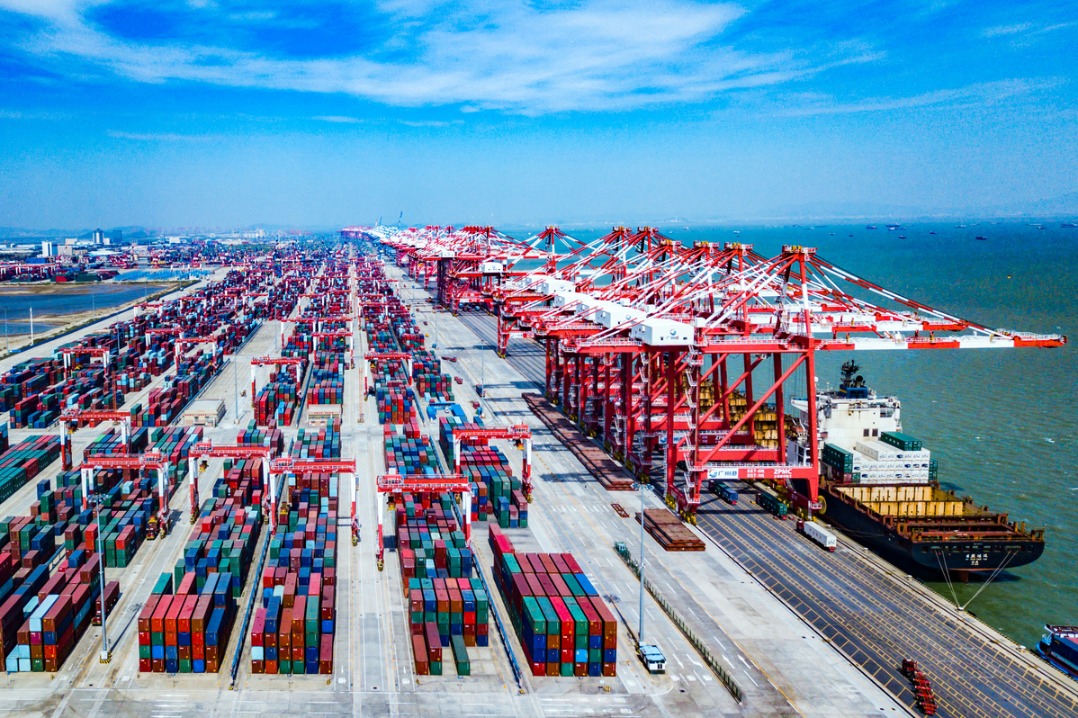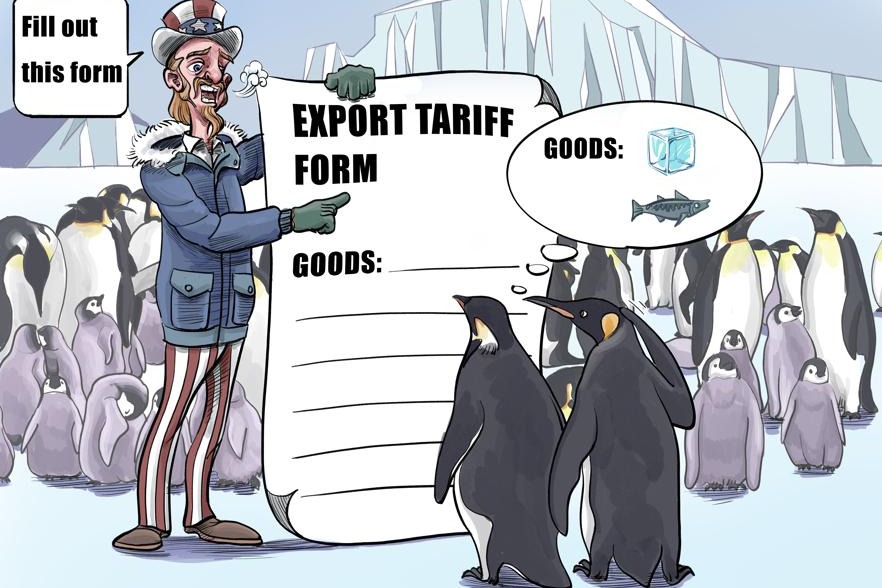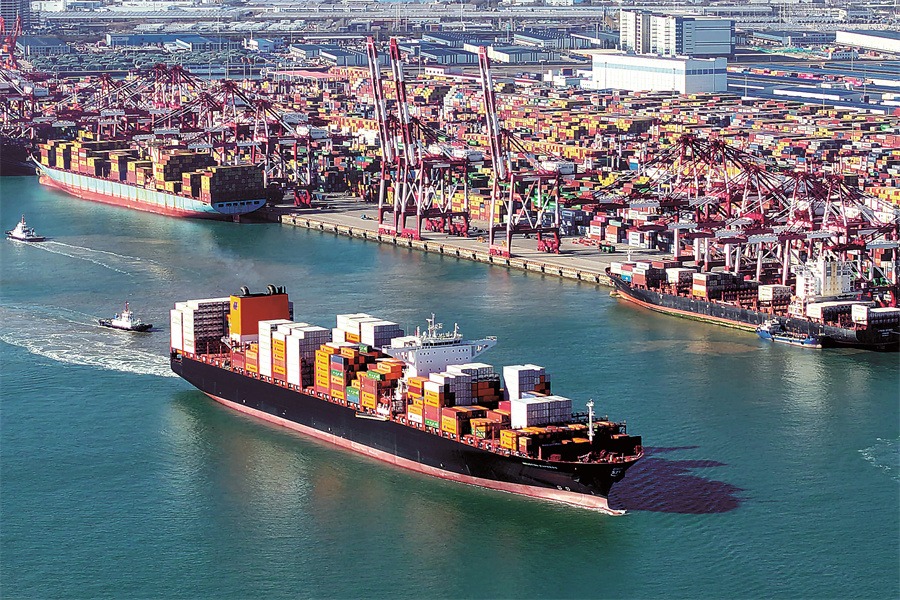Asia-Pacific must chart its own course


The specter of geopolitical instability, once part of a distant academic discourse, has become a tangible reality for businesses worldwide. Eight years ago, a seismic shift occurred when the United States, under then president Donald Trump, signaled a retreat from its traditional role as a global economic and security guarantor.
The echoes of that promise, "America First", resonate even more powerfully now as US voters have again chosen Trump as their president and supported the Republican Party in the elections. As a result, the Republicans dominate both the Senate and the House of Representatives, reinforcing the perception that reliance on US engagement is a precarious strategy for the global economy.
This resurgence of economic nationalism in the US necessitates a fundamental reassessment of regional economic strategies. The message "don't count on US" is a clear signal which both Trump and Vice-President JD Vance sent during the election campaign. In fact, they have been repeating the message even after assuming power.
As such, "don't count on US" is no longer a mere cautionary note; it is a stark imperative. Businesses and policymakers alike must acknowledge the shifting sands of global power dynamics and adapt to them accordingly.
In anticipation of this potential vacuum, regional actors have been trying to create alternative paths. Some of the Asia-Pacific countries have prepared for such a US policy pivot. The Regional Comprehensive Economic Partnership agreement, which includes China, the Republic of Korea and Japan and is a sprawling trade agreement encompassing 15 Asia-Pacific countries, stands as a testament to this strategic foresight.
"We have prepared RCEP" signifies the collective recognition that regional prosperity hinges on intra-regional cooperation, not external dependence. The RCEP represents a paradigm shift, prioritizing the deepening of economic ties among member states.
The concept of "regional partnership" is central to this new paradigm. It underscores the importance of fostering collaborative frameworks that transcend traditional bilateral relationships. This entails building resilient supply chains, harmonizing regulatory standards, and promoting investment flows within the region. It is aimed at creating a self-sustaining economic ecosystem, less vulnerable to the vagaries of external political currents, especially caused by the US.
The potential to "boost regional economic ties" is immense. The RCEP, with its vast market access and streamlined trade rules, can unlock opportunities for businesses across diverse sectors. Small and medium-sized enterprises, often the backbone of regional economies, stand to significantly benefit from reduced trade barriers and enhanced market access.
Furthermore, the RCEP can stimulate investment in infrastructure development, technological innovation and human capital, laying the foundation for long-term economic growth.
China is also well prepared to deal with the situation created by the US' tariffs by strengthening its "dual circulation development paradigm" (which allows the domestic and overseas markets to reinforce each other, with the domestic market as the mainstay) and exploring new markets by extending the Belt and Road Initiative. Moreover, China has been successfully shifting from being the "world's factory" to becoming an intellectual property rights economy.
But the path forward is not without challenges. Effectively implementing the RCEP requires sustained political will and a commitment to ending the lingering trade frictions. RCEP member states should deepen collaboration to overcome the regulatory hurdles, streamline customs procedures, and ensure fair competition. Also, the region must remain vigilant against protectionist tendencies and strive to maintain an open and inclusive trading environment.
Beyond the RCEP, other regional initiatives, such as the Comprehensive and Progressive Agreement for Trans-Pacific Partnership, also play a crucial role in shaping the future of Asia-Pacific trade. These agreements, while different in scope and membership, share a common objective: to foster deeper economic integration and promote sustainable development.
Moreover, the strategic implications of a less-engaged US go beyond economics. Security concerns, particularly in the South China Sea and on the Korean Peninsula, demand more robust regional security architecture. The Asia-Pacific region must cultivate its own mechanisms for conflict resolution and security cooperation, reducing its reliance on US help and mediation.
The US firmly told the European Union that Washington will no longer bear the lion's share for NATO's security, asked the EU to manage NATO and European security issues on their own, and not count on the US anymore. The US' message is crystal clear: The EU has achieved economic integration, so the EU alone has to maintain the bloc's security mechanism, because the US wants to focus on addressing its own matters.
Such behavior was pretty common in the US before World War II. They have decided they resort to their original way of thinking.
In conclusion, the Asia-Pacific region must chart its own course. The resurgence of the US' tariff policy, coupled with the potential for diminished American engagement, underscores the urgency of strengthening regional partnerships and deepening economic ties. The RCEP, as a cornerstone of this strategy, offers a promising path toward a more resilient and prosperous future.
While challenges remain, the collective determination to "boost regional economic ties" provides a powerful antidote to the uncertainties of a changing global landscape. The era of the US' unquestioned economic leadership is waning as the era of regional self-reliance is dawning.

The views don't necessarily reflect those of China Daily.
If you have a specific expertise, or would like to share your thought about our stories, then send us your writings at opinion@chinadaily.com.cn, and comment@chinadaily.com.cn.


































